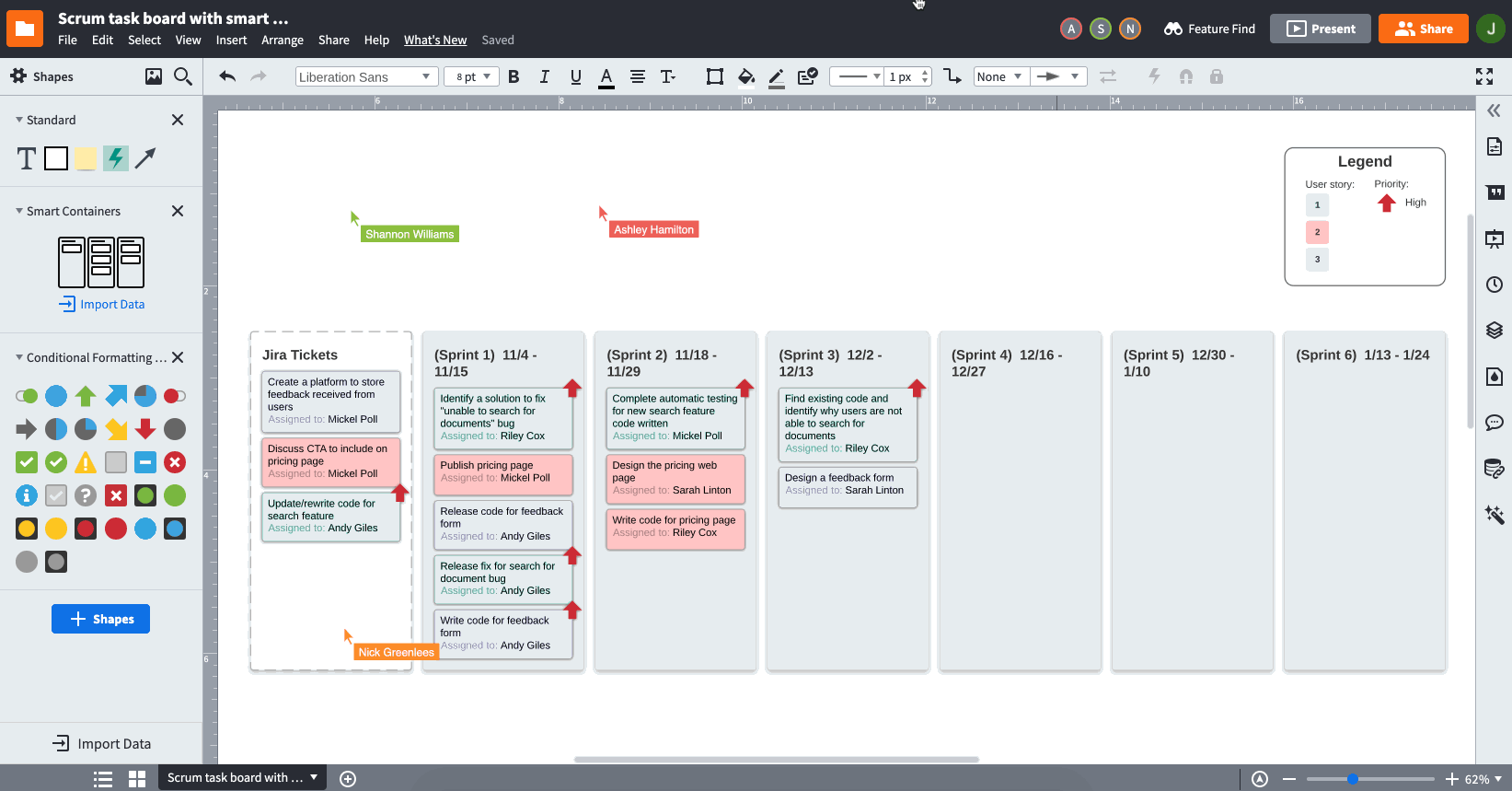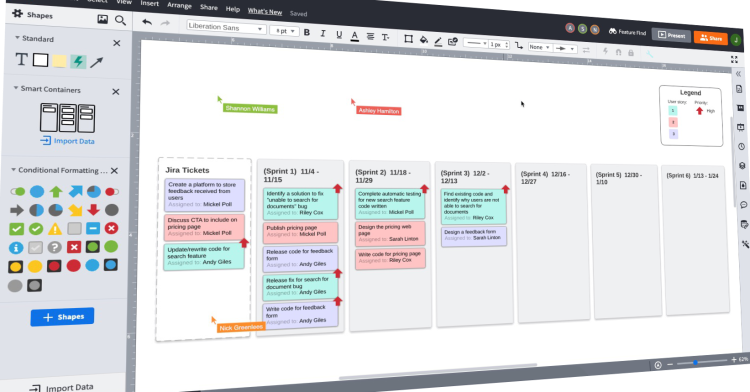Lucid Software, a web-based visual design platform, has raised $52 million in a round of funding led by Iconiq Capital, a wealth management firm that claims such big-name backers as Mark Zuckerberg. Meritech Capital, Spectrum Equity, and Cross Creek also participated in the round.
The South Jordan, Utah-based company said the funding round came together in about two weeks and shows investors are eager to back companies that continue to perform well during the current global economic crisis.
Founded in 2010, Lucid is best known for Lucidchart, a Microsoft Visio-style collaborative diagramming app that’s used for wireframing, whiteboarding, UI prototyping, and similar use cases. The company claims some major clients, including Google, Amazon, Netflix, Adobe, and Microsoft itself. Lucid also offers Lucidpress, a drag-and-drop design program for creating print and digital publications.

Above: Lucidchart collaboration
Lucid had previously raised $114 million, including a $72 million tranche in 2018, and with its latest cash injection it plans to double down on its Lucidchart product development and may also pursue merger and acquisition (M&A) deals and open new global offices.
June 5th: The AI Audit in NYC
Join us next week in NYC to engage with top executive leaders, delving into strategies for auditing AI models to ensure fairness, optimal performance, and ethical compliance across diverse organizations. Secure your attendance for this exclusive invite-only event.
Lucid cofounder and CEO Karl Sun told VentureBeat that while the company is not currently seeing a profit, it has now passed $100 million in annual recurring revenue and has been “very capital efficient.” He said that as of the end of 2019 Lucid had only spent about $20 million of the funding it has raised so far. This, coupled with the fact that it has just raised another $52 million, suggests the company is gearing up for aggressive expansion.
“We’ve had investors eager to invest more in Lucid over time, but quite frankly, we haven’t been interested in taking on more funding,” Sun said. “We have strong fundamentals and a long history of being fiscally prudent. In a challenged economy, companies are faced with a decision: Either you play defense or you play offense. We are going to play offense. To us, that means helping our current customers and many others work more efficiently and innovate more quickly. We are more bullish than ever on our ability to continue to scale the business and found that these investors fully believed in that approach as well.”
Lucid currently claims 20 million users in 180 countries, and with more businesses pushed to adapt to remote working, Lucid is well positioned to grow. According to Sun, March was a record month for the company, with more than a million Lucidchart registrations in the past four weeks.
“We have seen a surge in demand over the last month, and although we can’t completely attribute it to the shift to being at home, there are many correlations,” he said.
While it’s clear that many companies are benefiting from the sudden demands of social distancing and remote working, when the COVID-19 crisis subsides, demand for such services could drop accordingly. But Sun remains optimistic, asserting that the company was already doing well and anything that accelerates the adoption of remote collaboration tools is a bonus.
“Some of the uptick has come because of the shift to more remote work,” he said. “That might be a near-term surge, although I think there will continue to be great demand for Lucidchart because it is strong in collaboration. More generally, though, I believe that most companies are going to be going through a period where insight and agility are paramount. As such, we expect the demand for Lucidchart will remain high.”

